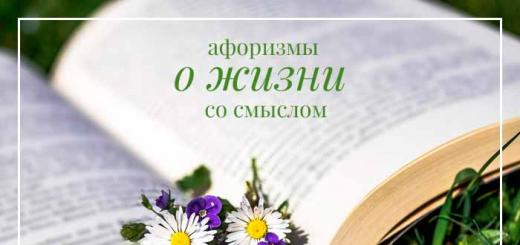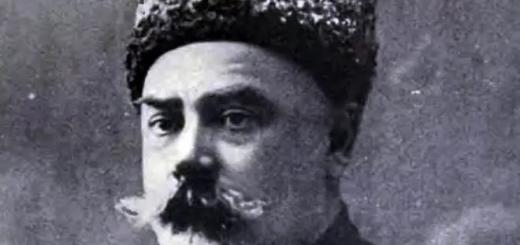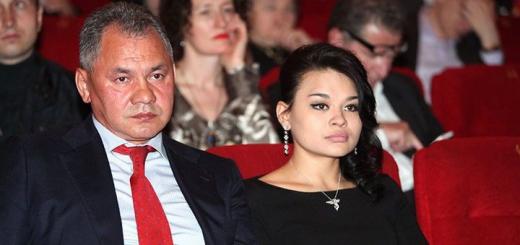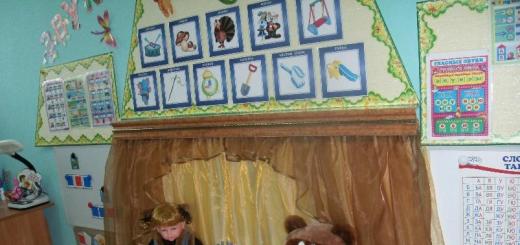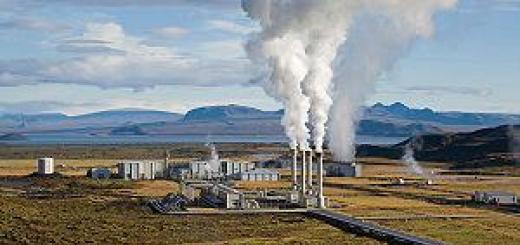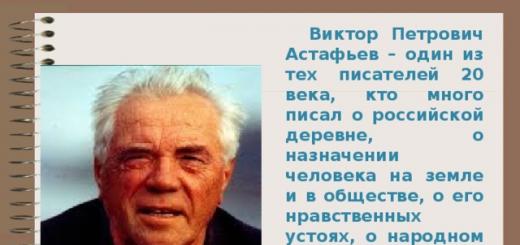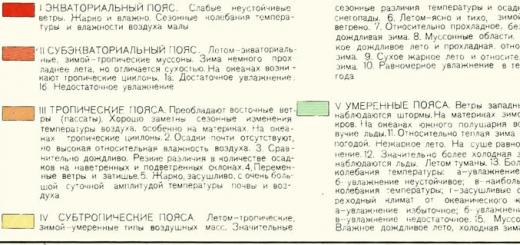Education in Britain (6)
The British
system of education has a very long history, but in the past few
years there have been many changes in it. British education was
traditionally decentralized, but now the Education Reform Act
has led to a compulsory National Curriculum for pupils aged five
to sixteen in state schools. The Act also aims to give parents a
wider choice of schools for their children. Thus they have the
right to express a preference for a school.
Boys and girls are taught together in most schools.
Non-selective comprehensive education caters for children of all
abilities. Most children receive free education financed from
public funds. 7% of children attend private fee-paying schools.
Around half of 3- and 4-year-olds in Britain receive nursery
education and many children attend preschool play groups, mostly
organised by parents. Compulsory primary education begins at the
age of 5. Children usually start their school career in an
infant school and move to a junior school or department at
seven. In some schools they move to middle school at the age of
eight, nine or ten. These three stages form the primary school,
covering the following subjects: English, Maths and Science,
History, Geography, Music, Art and Physical Education.
At seven and eleven years old (and at secondary school at
fourteen and sixteen) teachers measure children"s progress in
each subject against attainment targets. For each target there
are ten levels of attainment.
The secondary level includes the children from eleven to
eighteen. Here they expand the knowledge they have acquired at
primary school. And according to the National Curriculum they
start to learn a modern foreign language. At the age of (GCSE)
sixteen they can get General Certificate of Secondary Education
qualifications on the basis of examinations and course work.
If pupils are successful, they can continue to more advanced
education and training. After a further 2 years of study the
General Certificate of Education Advanced level exam is taken at
the age of 18 and can be combined with the Advanced
Supplementary level exam to provide a wider range of subjects.
These exams are the main standard for entry to university
education and to many forms of professional training. There is
also a Certificate of Pre-Vocational Education for those who
stay at school till seventeen. This provides a preparation for
work on vocational courses.
For those leaving school at sixteen there are Further Education
colleges. Most of them are work-related and vocational.
The next stage is higher education. All British universities
enjoy complete academic freedom. There are seventynine
universities, Oxford and Cambridge being the oldest of them.
Over 90% of students receive awards covering tuition fees and
maintenance.
Образование в Британии (6)
Британская система образования имеет
длинную историю, но за последние несколько лет в ней произошло
много изменений. Британское образование традиционно было
децентрализованным, но теперь Акт о реформе образования привел к
созданию обязательного Национального учебного плана для учащихся
с 5 до 16 лет в государственных школах. Акт также ставит целью
дать родителям более широкий выбор школ для своих детей. Таким
образом они получают право оказать предпочтение какой-либо
школе.
В большинстве школ мальчики и девочки учатся вместе.
Неизбирательное общее образование доступно детям с любыми
способностями. Большинство детей получают бесплатное
образование, финансируемое из общественных фондов. 7% детей
посещают частные платные школы.
Около половины 3-й 4-летних детей в Великобритании получают
дошкольное образование, а многие другие посещают дошкольные
игровые группы, в основном организованные родителями.
Обязательное начальное образование начинается с 5 лет. Дети
обычно начинают учебу в детской школе и переходят в младшую
школу или отделение в 7 лет. В некоторых школах они переходят в
промежуточную школу в 8, 9 или 10 лет. Эти три ступени образуют
начальную школу, в которой преподаются следующие предметы:
английский язык, математика, естественные науки, история,
география, музыка, искусство и физическое воспитание.
Достижения детей в 7 и в 11 лет, а в средней школе в 14 и 16 лет
сопоставляются с установленными целями по каждому предмету. На
каждом указанном этапе эти достижения расцениваются по
десятиуровневой градации.
В средней школе обучаются дети с 11 до 18 лет. Здесь они
расширяют знания, полученные в начальной школе. Согласно
Национальному учебному плану они начинают учить современный
иностранный язык. В возрасте 16 лет они могут получить Общий
сертификат о среднем образовании на основе экзаменов и учебной
работы.
Если ученики добиваются успеха, они могут перейти к более
продвинутому образованию и обучению. Через два года учебы, в
возрасте 18 лет, можно сдать экзамен на Сертификат о среднем
образовании продвинутого уровня, который можно сочетать с
дополнительным экзаменом продвинутого уровня, чтобы расширить
выбор предметов. Эти экзамены - основной стандарт допуска к
университетскому образованию и многим формам профессионального
обучения. Существует также Сертификат о предпрофессиональном
образовании для тех, кто остается в школе до 17 лет. Он
обеспечивает подготовку к работе на профессиональных курсах.
Для тех, кто оставляет школу в 16 лет, существуют колледжи
дальнейшего образования. Большинство из них профессиональные и
связаны с работой.
Следующая ступень - это высшее образование. Все британские
университеты пользуются полной академической свободой.
Существует 79 университетов, старейшие из них - Оксфорд и
Кембридж. Более 90% студентов получают дотации, покрывающие
плату за обучение и расходы на существование.
Education in Britain
In England and Wales compulsory school begins at the age of five, but before that age children can go to a nursery school, also called play school. School is compulsory till the children are 16 years old.
In Primary School and First School children learn to read and write and the basis of arithmetic. In the higher classes of Primary School (or in Middle School) children learn geography, history, religion and, in some schools, a foreign language. Then children go to the Secondary School.
When students are 16 years old they may take an exam in various subjects in order to have a qualification. These qualifications can be either G.C.S.E. (General Certificate of Secondary Education) or "O level" (Ordinary level). After that students can either leave school and start working or continue their studies in the same school as before. If they continue, when they are 18, they have to take further examinations which are necessary for getting into university or college.
Some parents choose private schools for their children. They are very expensive but considered to provide a better education and good job opportunities.
In England there
are 47 universities, including the Open University which teaches
via TV and radio, about 400 colleges and institutes of higher
education. The oldest universities in England are Oxford and
Cambridge. Generally, universities award two kinds of degrees:
the Bachelor"s degree and the Master"s degree.
Образование в Британии
В Англии и Уэльсе обязательное обучение в школе начинается с пяти лет, но до этого возраста дети могут ходить в детский сад, также называемый игровой школой. Обучение в школе обязательно до достижения детьми возраста 16 лет.
В первичной школе и начальной школе дети учатся читать и писать, а также основам арифметики. В старших классах первичной школы (или в средней школе) дети учат географию, историю, религию и, в некоторых школах, иностранный язык. После этого дети переходят в среднюю школу.
Когда ученики достигают шестнадцатилетнего возраста, они могут сдавать экзамены по различным предметам для получения квалификации. Квалификация может быть как образца О.С.С.О. (Основное свидетельство о среднем образовании), так и обыкновенного уровня. После этого учащиеся могут покинуть школу и устроиться на работу или продолжить образование в той же школе. Если они продолжат обучение, то, когда им исполнится 18 лет, они должны будут сдавать следующие экзамены, которые необходимы для поступления в университет или колледж.
Некоторые родители выбирают для своих детей частные школы. Они очень дорогие, но считается, что образование в них дается на более высоком уровне и имеются предпосылки для получения хорошей работы.
В Англии 47 университетов, включая
Открытый университет, обучение в котором производится по
телевидению и радио, около 400 колледжей и высших учебных
заведений. Старейшие университеты Англии - Оксфорд и Кембридж.
Главным образом, в университетах присваиваются два типа
степеней: степени бакалавра и магистра.
Questions:
1. When does
compulsory school begin?
2. How long does a child stay in compulsory school?
3. What subjects do children learn in Primary School?
4. What kind of exam do students have to take when they are 16?
5. Do students have to leave school at the age of 16 or to
continue their studies?
6. How do private schools differ from the regular ones?
7. How many universities are there in England?
8. What is the Open University?
9. What kinds of degrees do universities award?
Vocabulary:
compulsory - обязательная
nursery school - детский сад
exam - экзамен
subject - предмет
university - университет
private - частный
opportunity - возможность
to award - давать, присваивать
bachelor - бакалавр
master - магистр
,который поможет вам разобраться в непростой системе британских образовательных учреждений.
Топик по английскому Образование в Великобритании (Education in Great Britain) – очень интересная тема, потому что позволяет сравнить систему образования британцев с другими.
Который также поможет сформировать представление о том, что и где изучает ваш британский собеседник, а также какие экзамены ему предстоит сдавать.
Топик по английскому Образование в Великобритании (Education in Great Britain) рассказывает не только о школах, но и об известных высших учебных заведениях Великобритании, а также на какие типы подразделяются университеты в Великобритании.
Текст-----
Education in Great Britain
Education in Great Britain is compulsory and free for children from 5 to 16 years old. Some children attend kindergartens from the age of 3. However, it"s not compulsory. In kindergartens, children learn very simple things like colours, numbers and letters. They also play games and sleep after lunch. There is always someone keeping an eye on children, no matter what they do.
Compulsory education lasts 6 years; it begins at the age of 5 when children go to primary school. There are two periods: pupils from 5 to 7 years old attend infant schools and pupils from 7 to 11 years old attend junior schools.
The classes in infant schools usually consist of playing games and getting acquainted with teachers, classrooms and desks.
When children are 7 years old, the real studying begins. Pupils don"t play very much, they have classes where they sit at desks, write, read and answer the questions.
Compulsory secondary education consists of 5 forms and lasts 5 years. It begins when children are 11 or 12 years old. Children study History, English, Art, Mathematics, Geography, Music, Science and Foreign languages. There are also lessons of Physical training and Religion. At the age of 7, 11 and 14 pupils take examinations in the core subjects – Mathematics, English and Science.
There are 3 types of state secondary schools in Great Britain: comprehensive schools, grammar schools and modern schools.
Comprehensive schools take pupils without exams. Children are divided into humanitarian or technical groups according to their abilities.
Grammar schools give secondary education of a very high standard. At the age of 11 children pass tests to enter a grammar school.
Modern schools don"t prepare pupils for universities, but for practical jobs.
At the age of 16, pupils take the General Certificate of Secondary Education examination. The subjects for the exams are chosen by the pupil in the third or in the forth form.
After GCSE pupils have a choice: either they go to a Further Education College or continue their education in the sixth form. Those who stay at school, study for 2 more years for Advanced Level Exams in two or three subjects. It is necessary to get a place at one of British universities.
There are also about 500 private schools in Great Britain, they are very expensive and only 5% of schoolchildren attend these schools. The most famous British public schools are Harrow, Eton and Winchester.
After leaving secondary school young people apply to a college, university or a polytechnic.
The Universities of Great Britain are divided into 5 types:
- The Old ones (founded before the 19th century, e.g. Oxford, Cambridge);
- The Red Brick (founded in the 19th or 20th century);
- The Plate Glass (founded in 1960s);
- The Open University (students learn subjects and do exercises at home, then send their works to their tutors for checking);
- The New Universities (former polytechnic academies and colleges).
The University of Cambridge, The University of Oxford, London Imperial College, London School of Economics and London University College are considered the best universities.
Universities select students basing on their interviews and A-level results.
Students graduate from universities with the Degree of a Bachelor of Arts, Science or Engineering after three studying for three years. After that some students continue their studies for a Master"s Degree and then a Doctor"s Degree (PhD).

-----перевод-----
Образование в Великобритании
Образование здесь обязательное и бесплатное для детей от 5 до 16 лет. Некоторые дети с 3х лет ходят в детский сад. Однако, это не обязательно. В детских садах дети познают простейшие вещи, такие как цвета, цифры и буквы. Помимо этого, они играют и спят после обеда. За детьми всегда кто-то присматривает, чем бы они не были заняты.
Обязательное образование длится 6 лет, оно начинается с 5 лет, когда дети идут в начальную школу. Оно подразделяется на 2 периода: дети с 5 до 7 лет посещают школу для малышей, а дети с 7 до 11 лет ходят в начальную школу.
Уроки в младшей школе состоят из игр и знакомства с учителями, классам и партами.
Когда детям исполняется 7 лет, начинается настоящая учёба. Ученики не очень много играют, и отвечают на вопросы
Обязательное среднее образование состоит из 5 классов и длится 5 лет. Оно начинается, когда детям исполняется 11 или 12 лет. Дети изучают историю, английский язык, изобразительное искусство, математику, географию, музыку, естествознание и иностранные языки. Так же проводятся занятия по физической культуре и религии. В возрасте 7, 11 и 14 лет школьники сдают экзамены по основным предметам - математике, английскому языку и естествознанию.
Существует 3 вида государственных школ среднего образования: общеобразовательные школы, грамматические школы и современные школы.
Общеобразовательные школы принимают учеников без вступительных экзаменов. В таких школах дети обычно распределяются на гуманитарные и технические группы в зависимости от владения теми или иными навыками.
Грамматические школы дают среднее образование очень высокого уровня. Для поступления в такую школу необходимо сдать письменный экзамен в возрасте 11 лет.
Современные школы готовят детей не к поступлению в университет, а к рабочим специальностям.
В возрасте 16 лет ученики сдают экзамен на получение сертификата об окончании средней школы. Предметы для сдачи этого экзамена они выбирают в 3-м или 4-м классе.
После этого экзамена у учеников есть выбор: продолжить дальнейшее обучение в колледже, либо перейти в 6-й класс. Те, кто остаётся в школе, учатся ещё 2 года, после чего сдают экзамены уровня «А» по двум или трём предметам. Это необходимо для поступления в один из британских университетов.
В Великобритании также существует около 500 частных школ, обучение в них очень дорогое, поэтому их посещает только 5 % школьников. Наиболее известные частные школы Великобритании: Харроу, Итон и Винчестер.
После того как учащийся окончил школу, он может подать заявление в колледж, университет или техникум.
Британские университеты делятся на 5 типов:
- Древние (Основаны до 19 века, такие как Оксфорд и Кембридж);
- «Красного кирпича» (основаны в 19 или 20 веке);
- «Стеклянные» (основаны в 1960-х годах);
- Открытый университет (студенты изучают предметы и выполняют упражнения дома, затем посылают готовые задания преподавателям на проверку);
- Новые (бывшие политехнические академии и колледжи).
Кембридж, Оксфорд, Имперский колледж Лондона, Лондонская школа экономики и Университетский колледж Лондона считаются лучшими университетами.
Получение места в университете зависит от результатов собеседования и экзаменов уровня «А».
После трёх лет обучения студент выпускается из университета со степенью бакалавра гуманитарных, естественных или технических наук. После этого некоторые студенты продолжают учёбу, чтобы получить степень магистра, а затем и доктора наук.

Education in Great Britain is provided by the Local Education Authority (LEA) in each county. Until recently, each LEA was free to decide how to organize education in its own area. However, in 1988 the «National Curriculum» was introduced. It means that there is greater government control over what is taught in schools now.
Children under five don’t have to go to school, but there is some free nursery-school education before that age. The places are usually given to families in special circumstances, for example families with one parent only. That’s why in many areas parents have formed play groups where children under five years can go for a morning or afternoon a couple of times a week.
At the age of five children go to primary schools, first to infant schools for pupils aged from 5 to 7 and then to junior, schools for pupils from 8 to 11 years.
Some parents choose to pay for private education though there are free state schools. Private schools are called by different names compared to state schools. The preparatory schools are for pupils aged up to 13, and the public schools are for 13 to 18 year-olds. These schools are very expensive and they are attended only by about 5 per cent of the schoolchildren.
Free secondary education has been available to all children in Britain since 1944. Children must go to school until the age of 16, and pupils may stay on for one or two years more if they wish.
Over 80 per cent of schoolchildren go to comprehensive schools at the age of 11. These schools are not selective - you don’t have to pass an exam to go there. But before 1965 all children took an exam at the age of 11 called the «11+». The top 20 per cent were chosen to go to the academic grammar schools. Those who failed the «11+» went to secondary modern schools. A lot of people thought that this system of selection at the age of 11 was unfair on many children. So comprehensive schools were introduced to offer education for pupils of all abilities. There are a few LEAs who still keep the old system, but most LEAs have now changed over completely to nonselective education in comprehensive schools.
Comprehensive schools want to develop the talents of each individual child. So they offer a wide choice of subjects, from art and craft, woodwork and domestic science to the sciences, modern languages, computer studies, etc. All these subjects are enjoyed by both girls and boys. All pupils move to the next class automatically at the end of the year.
At the age of 14 or 15 pupils begin to choose their exam subjects. In 1988 a new public examination - the General Certificate of Secondary Education (GCSE) - was introduced for 16 year- olds. This examination assesses pupils on the work they do in the 4th and 5th year at secondary school, For University entrance pupils have to take «А» Level (Advanced Level) GCE exam.
Many people decide to leave school at the age of 16 and go to a Further Education (FE) College for practical vocational training, for example in engineering, typing, cooking or hairdressing.
England is one of the top countries which offer excellent education. English educational system is quite different from the system in many other countries. It is class-divided into state and private schools. For children aged between 5 and 17 full-time education is compulsory. Primary education starts at the age of 5. Before that children may attend a nursery school. Secondary education starts at the age of 11 and continues up to 18. After that children receive tertiary education. Almost 93% of English children attend state-funded schools, which are without charge. Only some activities such as theatre visits or field trips may require voluntary payment. All state schools in England are divided into six categories:
- Community schools, in which the local authority is responsible for school staff and admissions.
- Free schools are newly established institutions in England, which are set up parents, businesses, charities. These schools are free to attend and funded mainly by tax-payers.
- Academy schools have recently replaced poorly-performing community schools in economically challenged areas. They are monitored by the Department for Education.
- Foundation schools are institutions in which the governing body or a charitable foundation is responsible for the admissions and staff.
- Voluntary Aided schools can be linked to various organizations, such as churches, trade associations, etc. They can be faith schools or non-denominational schools.
- Voluntary Controlled schools are almost always linked to the church. While their lands and buildings are owned by charitable foundations, the local authority is responsible for the staff and admissions.
Some English children attend private or independent schools, which require additional fee. Children with particular skills are sometimes offered scholarships for studying in such schools. Private schools do not follow the National Curriculum. Both private and state-funded schools hold GCSE (General Certificate of Secondary Education) examinations for children aged 14-16. It’s a group of tests taken in a number of subsequent subjects. From age 18 children normally enter university to receive an academic degree.
The typical first degree offered in British universities is the bachelor’s degree, which usually takes three years. There are universities which offer a master’s degree as well. Such education usually lasts for four years. British universities have a certain hierarchy. The most prestigious universities in the country are Oxford and Cambridge. They are also world-famous. Although the state doesn’t control the syllabuses of higher education institutions, it does influence admission procedures. Undergraduates, who have already completed a first degree education, may continue studying in postgraduate to achieve a Master’s degree or a Doctorate.
Образование в Англии
Англия входит в список лучших стран, предлагающих отличное образование. Английская образовательная система немало отличается от системы во многих других странах. Она классово разделена на государственные и частные школ. Для детей в возрасте от 5 до 17 лет очное обучение является обязательным. Начальное образование начинается в возрасте 5 лет. До этого дети могут посещать детские сады. Среднее образование начинается в возрасте 11 лет и длится до 18 лет. После этого дети получают высшее образование. Почти 93% английских детей посещают школы, финансируемые государством, которые бесплатны. Только для некоторых видов деятельности, таких как посещение театра или походы, могут потребоваться добровольные взносы. Все государственные школы в Англии делятся на шесть категорий:
1. Общественные школы, в которых местная власть несет ответственность за работников и обучающихся.
2. Школы свободного обучения, недавно созданные учреждения в Англии, которые образовались благодаря родителям, бизнес учреждениям, благотворительным организациям. Эти школы можно свободно посещать, и они финансируются в основном налогоплательщиками.
3. Школы академического обучения – недавно созданные замены общественных школ, плохо справляющиеся со своими обязанностями, в экономически нуждающихся районах. Они контролируются Департаментом образования.
4. Школы финансируемые фондом, в которых руководящий орган или благотворительный фонд несет ответственность за персонал и обучающихся.
5. Школы добровольной помощи могут быть связаны с различными организациями, такими как церковь, торговые ассоциации и т.д. Это могут быть религиозные или неконфессиональные школы.
6. Школы, контролируемые добровольческими организациями, почти всегда связаны с церковью. В то время как их земли и здания принадлежат благотворительным фондам, местные власти несут ответственность за сотрудников и учащихся.
Некоторые английские дети посещают частные или независимые школы, которые требуют дополнительную плату. Детям с особыми талантами иногда предлагаются стипендии для обучения в таких школах. Частные школы не подчиняются Национальной Программе. Как частные, так и государственные учебные заведения, проводят выпускной экзамен GCSE (Общее свидетельство о среднем образовании) для детей в возрасте 14-16 лет. Это группа тестов, проводимых по нескольким определенным предметам. После 18 лет дети обычно поступают в университет, чтобы получить ученую степень.
Обычно британские университеты предлагают в качестве первого образования степень бакалавра, что занимает около трех лет. Есть также университеты, предлагающие степень магистра. Такое образование обычно длится в течение четырех лет. Британские университеты имеют определенную иерархию. Самыми престижными университетами в стране считаются Оксфорд и Кембридж. Они также всемирно известны. Хоть государство и не контролирует учебные программы высших учебных заведений, оно оказывает определенное влияние на процесс поступления. Студенты, которые уже получили первую степень, могут продолжить обучение в аспирантуре для получения степени магистра или доктора.

